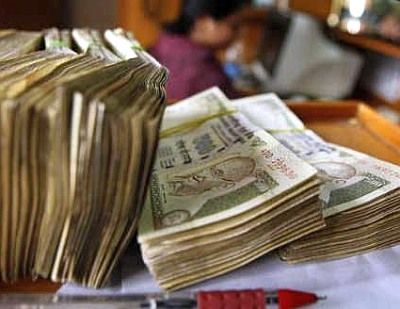 Plunging to its fresh two-year low against the US dollar, the rupee on Tuesday lost 11 paise at 66.84 on consistent demand for the American currency from banks and importers.
Plunging to its fresh two-year low against the US dollar, the rupee on Tuesday lost 11 paise at 66.84 on consistent demand for the American currency from banks and importers.
Extreme volatility in domestic equities as well as expectations that the Federal Reserve is on track to raise interest rates for the first time since 2006 predominantly impacted the rupee sentiment.
The robust US macro and jobs report cemented a Fed lift-off this month.
The domestic currency opened substantially lower at 66.85 per dollar from overnight closing level of 66.73 at the Interbank Foreign Exchange due to strong dollar demand in the wake of sustained foreign capital outflows.
However, the home currency recouped its early losses on fresh dollar selling and touched session's high of 66.71 before retreating back to conclude at a two-year low of 66.84, revealing a fall of 11 paise, or 0.16 per cent.
It had last ended at 67.07 on September 4, 2013.
On the global front, the US dollar traded marginally lower against the yen and the euro, but remained broadly stronger against the commodity linked currencies after Chinese exports fell for the fifth consecutive month added to fears over a slowdown in the world's second-largest economy.
The dollar index, which measures the greenback's strength against a trade-weighted basket of six major currencies, eased 0.05 per cent to 98.69.
Meanwhile, financial markets across Asia plunged sharply reacting to a deepening global commodities rout after crude oil prices slumped to fresh six-year low on supply glut fears following news of OPEC's inability to agree on daily quota amid sluggish Chinese trade data.
The stock market flagship index Sensex tanked over 220 points to end at 25,310.33 -- its lowest level in three-months, extending the slide to fifth session.





